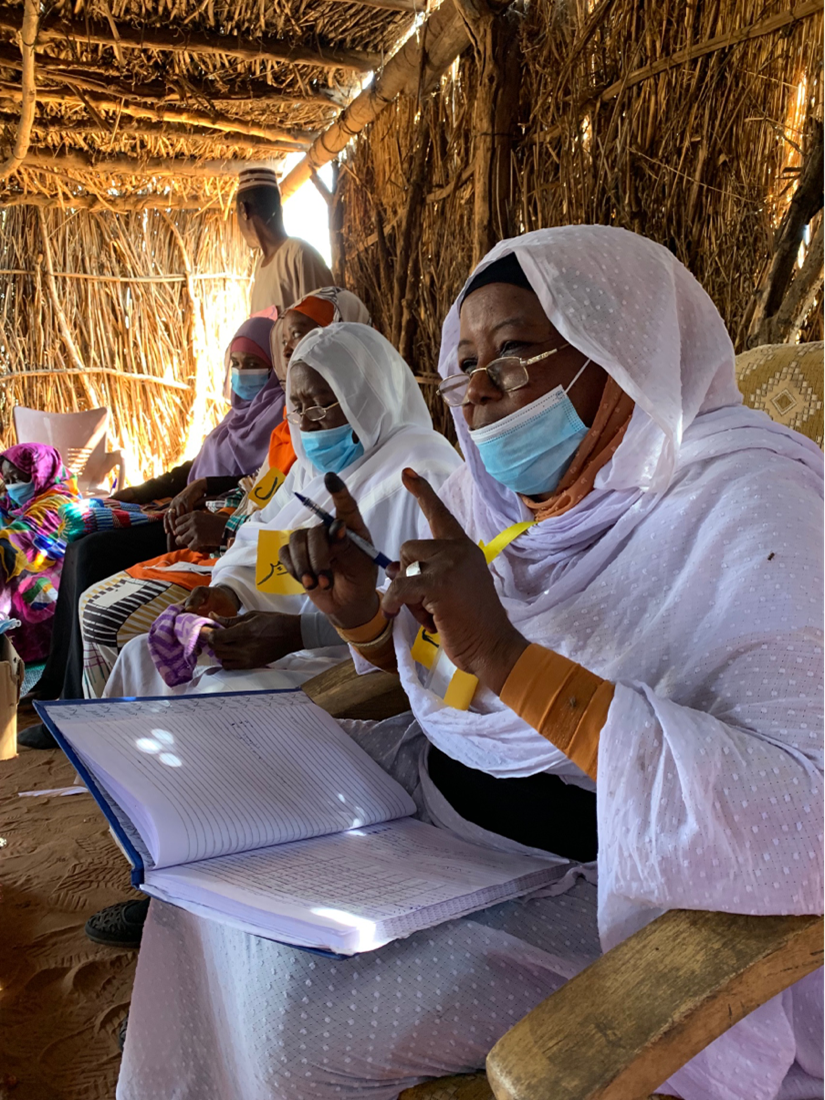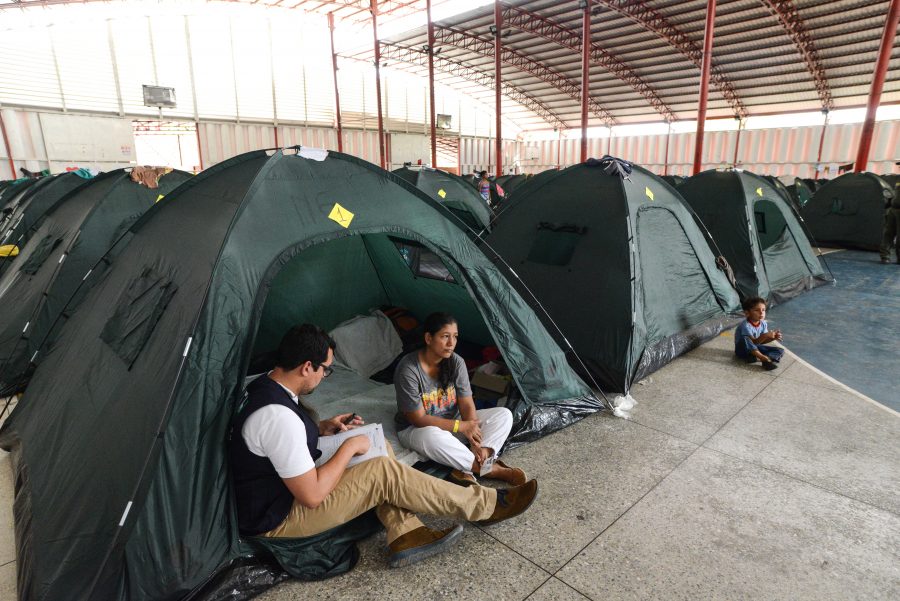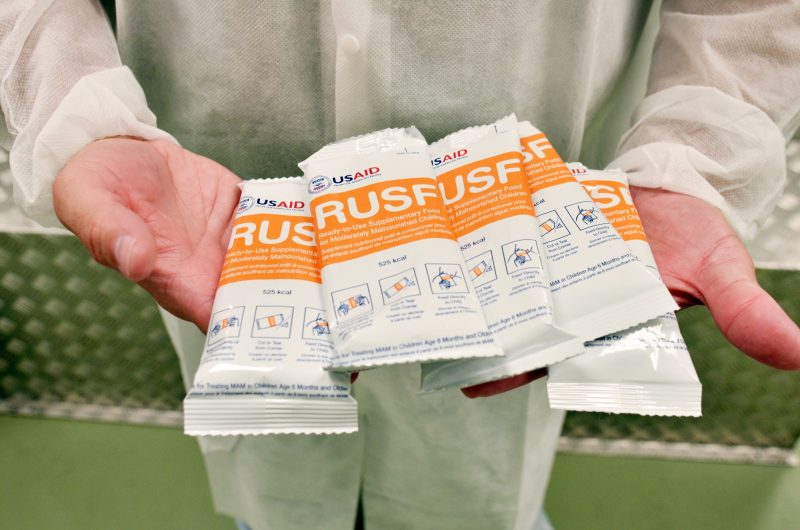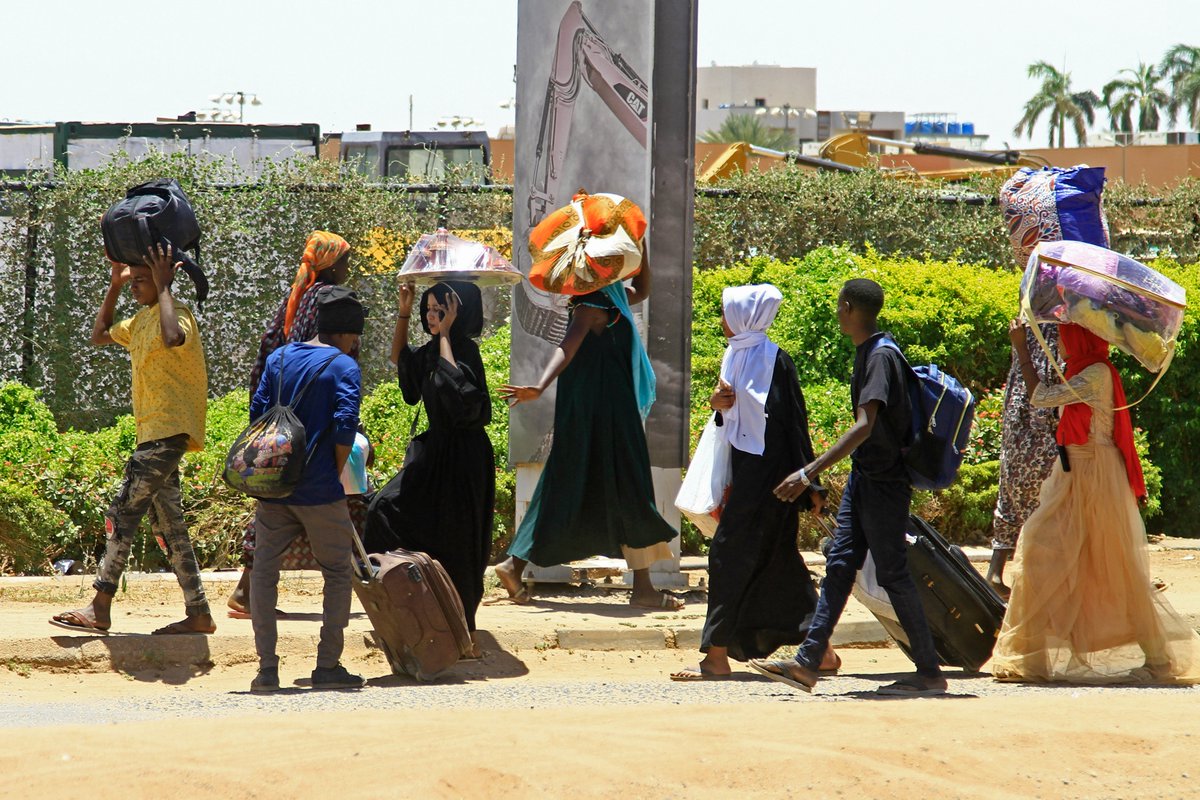
Coalition for Mutual Aid in Sudan
A group of global funders and other partners committed to strengthening local humanitarian response in Sudan are joining forces and resources to support the life-saving efforts of frontline local responders.
A humanitarian catastrophe is unfolding in war-torn Sudan. With few international aid organizations on the ground and extreme challenges accessing affected populations, Sudanese mutual aid groups have emerged as the most effective means to deliver aid to millions of people on the brink of starvation at this time.
During the Clinton Global Initiative 2024 Annual Meeting in New York on Sept. 23, the newly formed Coalition for Mutual Aid in Sudan announced that it is channeling at least $2 million in emergency funds and other support to vetted networks of Sudanese responders by the end of 2024. They also pledged to draw attention to the humanitarian crisis in Sudan and to mobilize an additional $4.5 million or more in contributions to expand the reach and capacity of Sudanese responders through 2026.
The Coalition invites philanthropy, government and multilateral aid donors to join it in investing in mutual aid in Sudan as the most viable and cost-effective mechanism to reach at-risk communities now and for the foreseeable future.
Frequently asked questions
What is the humanitarian crisis in Sudan?
The brutal civil war that erupted in Sudan in April 2023 has evolved into the world’s largest hunger and displacement crisis.
Tens of thousands of civilians have been killed and many more injured. More than 12 million people have been forced from their homes, including 10 million still inside Sudan, struggling to survive with next to no food, clean water or medical services. Half of the displaced are children. Sudan’s infrastructure is in ruins and the health system is on the brink of collapse.
There was already severe food insecurity, economic and political instability and prolonged drought before the civil war started. With farming and food production halted, markets shut and supply routes cut off by violence, more than 25 million people, over half the population of Sudan, now face acute hunger.
Famine was confirmed in part of Darfur in July 2024 and looms in 13 other regions.
The international humanitarian response has been stifled by underfunding, insecurity and obstruction by the warring parties. International aid agencies have been denied access to civilians in dire need.
Networks of local mutual aid groups have sprung up in response. Despite extreme security risks and resource constraints, they have become lifelines to countless Sudanese people living through unimaginable violence and hardship.
Learn more about the Sudan Humanitarian Crisis.
What is the Coalition for Mutual Aid in Sudan?
The Coalition is a group of global funders and other partners committed to strengthening local humanitarian response in Sudan.
Announced during the Clinton Global Initiative Annual Conference in September 2024, the Coalition launched with financial contributions from nine donors:
- Bill & Melinda Gates Foundation
- Center for Disaster Philanthropy
- Global Giving
- Global Fund for Women
- Humanity United
- Saphira Fund
- Urgent Action Fund – Africa
- Unitarian Universalist Service Committee
- Vitol Foundation
They will receive technical support from six key partners:
- ALNAP
- Centre for Humanitarian Leadership
- CORE
- Humanitarian Leadership Academy
- Saferworld
- Shabaka
The Coalition was initiated by the Strengthening Local Humanitarian Leadership Collaborative, which is coordinated by the Center for Disaster Philanthropy.
What type of support is the Coalition providing local mutual aid groups?
Donations will be in the form of direct and flexible community grants, ensuring that local groups can set their own agendas, determine how to receive and distribute funds, scale-up their humanitarian response and kickstart recovery in their communities.
What are mutual aid groups? What is their role in the humanitarian response in Sudan?
Mutual aid groups, sometimes called emergency response rooms or ERRs and include women’s groups, are informal institutions that tend to be unbureaucratic, democratized and decentralized. They are well-organized and work in an increasingly effective and coordinated manner with support from Localization Coordination Councils.
They have become lifelines to countless Sudanese living through unimaginable violence and hardship. Some examples of their work include:
- Monitoring the frontline to evacuate families to safe places and bring the injured to makeshift clinics.
- Setting up emergency shelters, mobile kitchens, women’s collectives and learning centers
- Repairing water sources, vehicles, internet connections and electrical wires.
- Sourcing and delivering food, medicine, spare parts and other essentials.
- Caring for survivors of sexual assault and children separated from their families.
- Setting the foundation for peace dialogues and conflict resolution in communities across the country.
The volunteers are ordinary citizens: shopkeepers, teachers, technicians, health workers, drivers, traders, engineers, journalists, former civil servants and activists. Many come from youth, faith, elder and women’s groups as well as Sudanese staff from aid organizations.
Despite extreme security risks and resource constraints, these mutual aid groups are maximizing their impact with meager donations from community members, diaspora and increasingly national and international aid agencies.
The needs are colossal and overwhelming. Mutual aid groups in Sudan require an infusion of long-term support to scale up life-saving aid as the situation continues to deteriorate.
They are the only providers of last-mile assistance in much of Sudan now and for the foreseeable future.
Learn more about mutual aid groups in Sudan.
Why should donors support mutual aid groups in Sudan now?
This catastrophe requires massive investment from global donors and an all-hands-on-deck humanitarian response if large-scale famine is to be averted.
There’s no telling if or when international actors can mobilize staff, supplies and services to scale. Mutual aid groups are currently the primary aid providers able to reach those struggling to survive in much of Sudan.
While they could never come close to addressing a humanitarian emergency and the eventual recovery and peacebuilding process of this magnitude alone, they could help prevent the spread of famine, disease, death and suffering. With more resources, mutual aid groups could scale up life-saving services and work alongside larger-scale programs by national and international responders.
With its ability to be nimble, innovative and entrepreneurial, philanthropy can pilot and demonstrate effective funding mechanisms and pathways for donors to reach mutual aid groups in Sudan while managing risks.
We call on philanthropy, governmental and multilateral aid donors to join us in investing in mutual aid networks and local humanitarian and civil society leadership in Sudan. It’s the most viable and cost-effective mechanism to reach at-risk communities in Sudan now and for the foreseeable future.
How is the Coalition ensuring that funding is being stewarded by trusted organizations and addressing critical needs on the ground?
The Center for Disaster Philanthropy, which is coordinating the initiative, is working with partners on the ground to map emergency response rooms and other community groups, conduct due diligence and determine the best options for transferring funds.
CDP helps funders donate with confidence, steering grants to effective vetted proximate organizations that help marginalized communities in times of crisis. The catastrophe unfolding in Sudan is no different.
Given the complexities of funding flows, CDP is working with partners and Local Coordination Councils to ensure the safe delivery of grants through transfer services, hawala, digital cash and other pathways.
Can other donors join the Coalition?
Yes! Contact CDP to learn more about participating in this bold coalition of donors committed to supporting life-saving efforts in Sudan.
You may also donate through the CDP Sudan Humanitarian Crisis Fund. Specify “Coalition for Mutual Aid in Sudan” in the designation option.
I am ready to support mutual aid in Sudan. How can I make a donation or grant?
Thank you for supporting life-saving efforts in Sudan!
You may give through a variety of ways. Donors can support mutual aid groups directly with unrestricted grants that transfer decision-making power to local aid providers and specify flexible reporting requirements.
Recognizing this isn’t always possible, donors may also give to international organizations with close ties to mutual aid groups and through intermediaries such as CDP and our Sudan Humanitarian Crisis Fund. Specify “Mutual Aid in Sudan” in the designation option.
Contact us today if you would like to explore other ways to support or get involved in providing critical resources to mutual aid organizations in Sudan.
Contact us
Discover how you can reach the people in Sudan by supporting mutual aid groups. Contact us today.
Related Resources

Complex Humanitarian Emergencies

Famine
